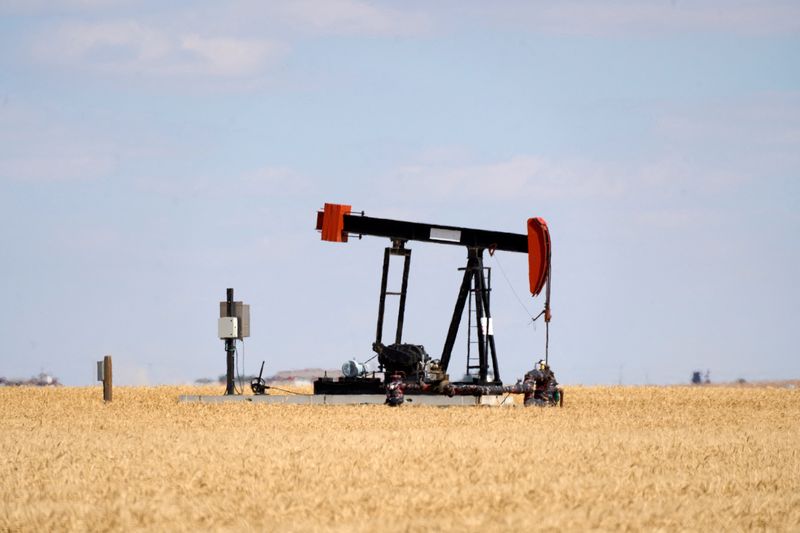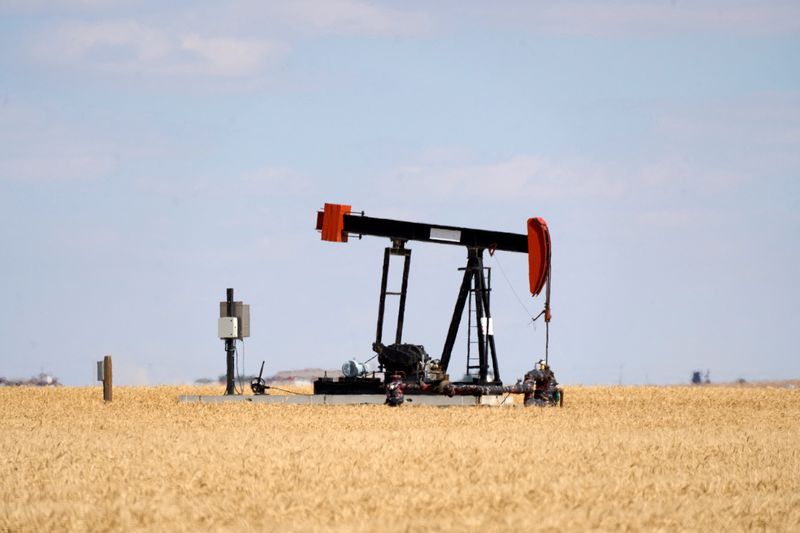
By Arunima Kumar
(Reuters) -Oil prices rose 1% on Friday, extending their rally and putting crude on course for a weekly gain on the back of output disruption in the U.S. Gulf of Mexico after Hurricane Francine forced the evacuation of production platforms.
Brent crude futures rose 72 cents, or 1%, to $72.69 a barrel by 1048 GMT. U.S. West Texas Intermediate crude futures were up 80 cents, or 1.2%, at $69.77.
If those gains hold, both benchmarks will break a streak of weekly declines despite Brent crude dipping below $70 a barrel on Tuesday for the first time since late 2021.
At current levels, Brent is set for a weekly increase of about 2.3% while WTI is set to register a 3% gain.
“Ongoing supply disruptions in Libya and larger than expected disruption in the Gulf of Mexico due to Hurricane Francine keep the oil market tight,” said UBS analyst Giovanni Staunovo.
“Further support is likely coming from short-covering activity as result of rebounding prices.”
A weaker U.S. dollar also helped support oil prices. The currency fell to a one-week low on Friday, making dollar-denominated commodities cheaper for holders of other currencies.
Oil producers assessed damage and conducted safety checks on Thursday as they prepared to resume operations in the U.S. Gulf of Mexico. Official data showed that nearly 42% of the region’s oil output was shut in as of Thursday.
UBS analysts forecast September output in the region will fall by 50,000 barrels per day (bpd) from the previous month while FGE analysts estimated a drop of 60,000 bpd to 1.69 million bpd.
“If production delays were to prove to be short-lived and damages to oil platforms were to be minimal, those gains may be unwound, as the broader demand outlook continues to serve as a key headwind to limit any sustained recovery,” IG market strategist Yeap Jun Rong said in an email.
Both the Organization of Petroleum Exporting Countries (OPEC) and the International Energy Agency (IEA) lowered their demand growth forecasts this week, citing economic struggles in China, the world’s largest oil importer.

In the United States, oil stockpiles also rose across the board last week as crude imports grew and exports dipped, the Energy Information Administration (EIA) said on Wednesday.
In the meantime, investors are looking ahead to the U.S. Federal Reserve’s policy meeting over Sept. 17-18 and a possible cut to interest rates.
This post is originally published on INVESTING.





